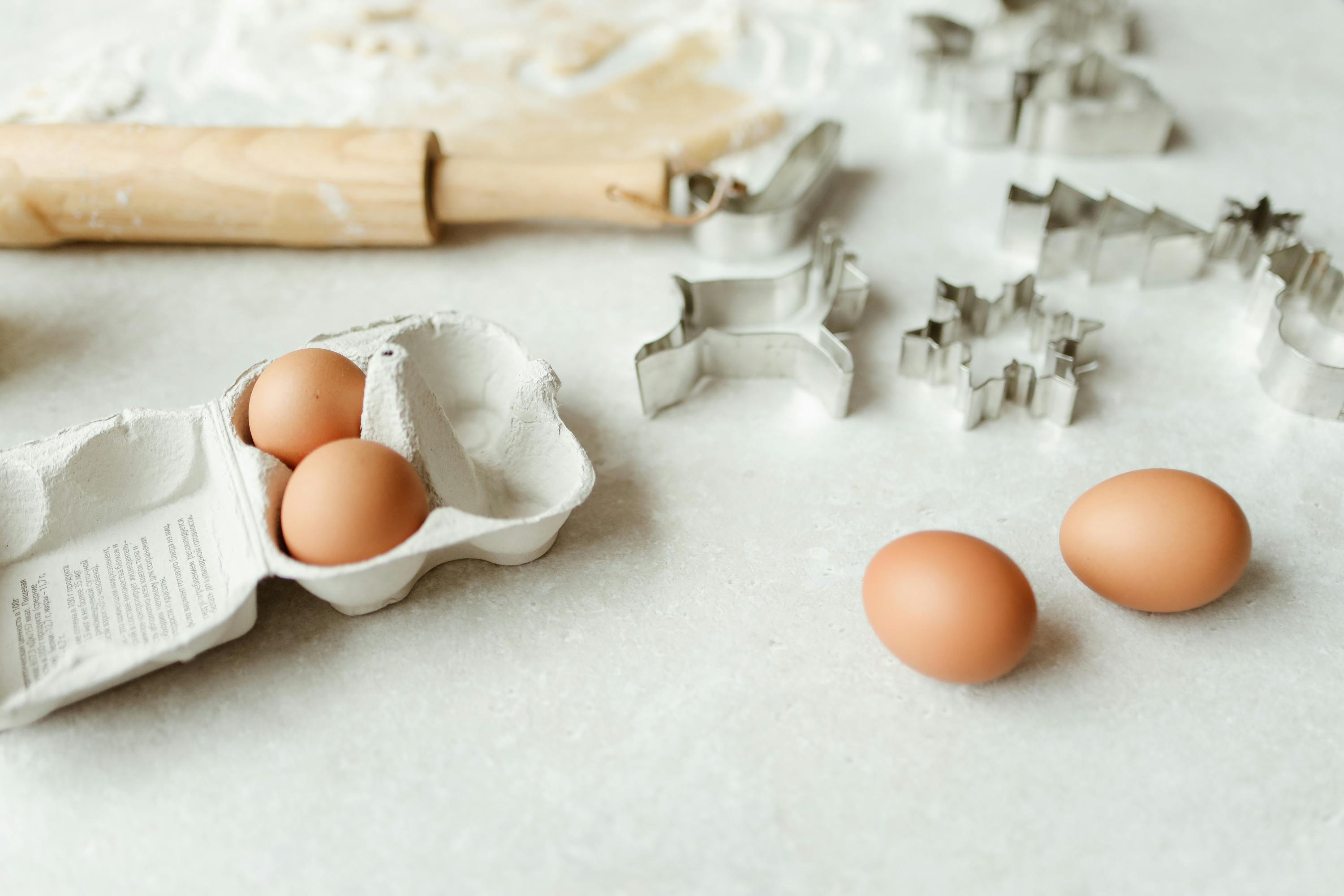So many people have doubts on how to store eggs? How many eggs should we eat per week? Are eggs healthy or not? There are so many questions popping up all the time, that I’ve decided to throughly explain all I know about eggs. I hope I can help answering all those questions and that you enjoy me sharing all my knowledge with you!
So let’s start with the basics.
Eggs are a very nutritionally rich food. They have a moderate energy value (82 kcal/55g – 1 egg), are rich in high-quality protein, are a source of 18 vitamins and minerals that are important for the proper functioning of various cellular processes in the body, and contain only 2.7g of saturated fat per 100g.
Eating eggs together with other foods can also help our bodies absorb more vitamins. For example, one study found that adding an egg to a salad can increase the amount of vitamin E our body incorporates.
How to tell if an egg is good?
Salmonella is a bacterium (or bacillus) responsible for infections in humans. They can withstand long periods of freezing, but are not very heat resistant, and cannot withstand temperatures above 70 ºC.
To avoid food poisoning or infection by salmonella, we should cook the egg (or the recipe that includes it) or store eggs properly in the refrigerator and handle them with care, washing our hands and utensils thoroughly before and after contact with eggs to avoid any contamination.
Salmonella can enter eggs through cracks in the shell. Therefore, use fresh eggs with the shell clean and perfect.
Elderly people, pregnant women, babies, and very vulnerable children should avoid eating raw and undercooked eggs!
There is a very simple and effective trick to tell if an egg is good or not:
1) Put the egg in a long container filled with water
2) If the egg sinks, it is good. The faster it sinks, the fresher it is. The fresh egg is heavier because of the greater volume of water inside.
3) If the egg floats in the water, it is bad. The egg is not fresh when the air pocket expands, and this causes the egg to float in the water.
When in doubt, don’t risk it. Throw the egg away and use another, testing the next egg.

Source: Food and Home
How to store eggs
People frequently inquire, “How long can I keep eggs?” Eggs must be kept refrigerated or frozen since they are perishable. The length of time eggs last depends on a variety of things. Eggs seldom deteriorate if handled and kept correctly. However, if you leave them out for too long, they will dry out. These fresh egg preservation methods will teach you how to keep eggs fresh for as long as possible.

Some recommendations are:
– Put the eggs in the refrigerator (fridge) immediately after purchase.
| Eggs | Refrigerator (35°F to 40°F / 2°C to 7°C) |
| Raw whole eggs (in shell) | 4 to 5 weeks beyond the pack date or about 3 weeks after purchase |
| Raw whole eggs (slightly beaten) | Up to 2 days |
| Raw egg whites | Up to 4 days |
| Raw egg yolks | Up to 2 days |
| Hard-boiled eggs (in shell) | Up to 1 week |
| Hard-boiled eggs (peeled) | Use the same day for best quality |
– Store eggs in the carton.
– Store eggs with the tip down to keep the yolk centered.
– Do not wash them if they are very dirty. Wipe them with a dry or slightly damp paper towel.
– Separated whites and yolks, or whole eggs but without the shell, should be kept in the refrigerator (fridge) in airtight containers.
– Egg whites (raw) will last 1 week, yolks and whole (raw) eggs up to 2 days.
– Any food containing raw eggs should be kept in the refrigerator (fridge) and consumed within 2 days at most.
– Boiled eggs, in their shells, last up to 1 week when stored in the refrigerator.
I hope this blog post was helpful! Should you have any other questions, please feel free to ask either on the comments section or per email: [email protected]
Have a sweet week,
Leonor
